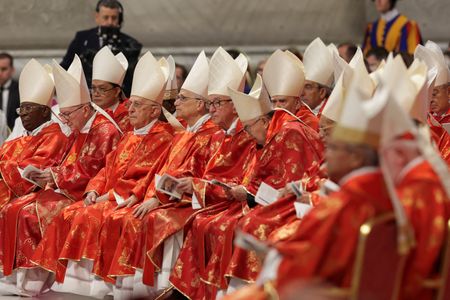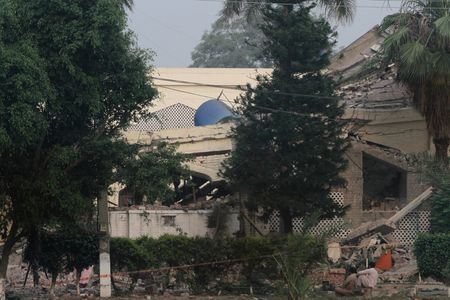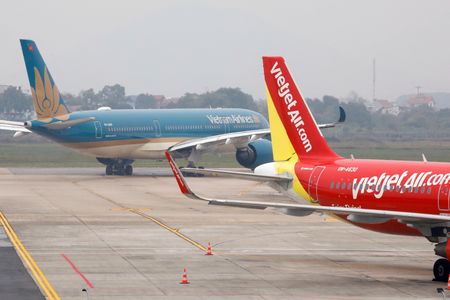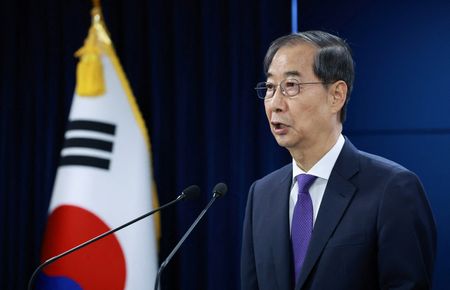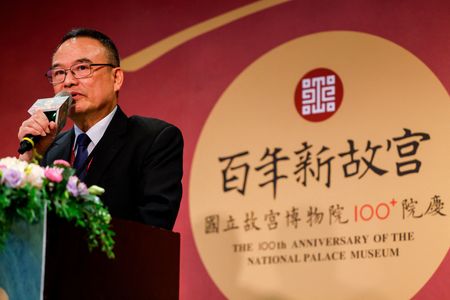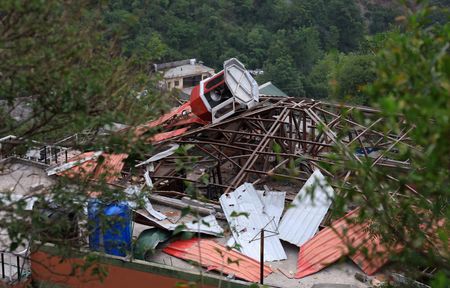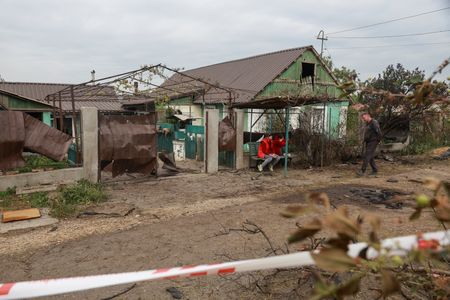By Crispian Balmer, Joshua McElwee and Philip Pullella
VATICAN CITY (Reuters) – Catholic cardinals who will choose the next pope were locked behind the heavy wood doors of the Sistine Chapel on Wednesday, sequestered from the world to elect the man they hope can unite a diverse but divided global Church.
In a ritual dating back to medieval times, 133 cardinal electors walked slowly into the chapel before taking an oath of perpetual secrecy under the gaze of the stern Christ depicted in Michelangelo’s Last Judgement fresco, which adorns the chapel.
Archbishop Diego Ravelli, the Vatican’s master of ceremonies, then pronounced the Latin command “Extra omnes!” (Everyone out!), telling all those not involved in the conclave to leave.
The chapel’s doors were slammed shut, allowing the cardinals to hold their first ballot to look for a successor to Pope Francis, who died last month.
No pope has been elected on the first day of a conclave for centuries and voting could continue for several days before one man receives the necessary two-thirds majority to become the 267th pontiff.
There will be only one ballot on Wednesday. Thereafter, there can be as many as four votes a day.
During a formal procession into the Sistine Chapel, the cardinals beseeched nearly 100 men and women believed to reside in heaven to pray for them as they prepare to make the momentous decision.
The only expected signal from the cardinals during the conclave will come in the form of smoke from a chimney atop the chapel, as the clerics burn their ballots.
Black smoke will mark an inconclusive vote; white smoke and the pealing of bells will signal that the 1.4-billion-member Church has a new leader.
‘WATCHFUL CARE’ OVER THE WORLD
At a Mass in St. Peter’s Basilica on Wednesday before entering the conclave, the cardinals prayed that God would help them find a pope who would exercise “watchful care” over the world.
In a sermon, Italian Cardinal Giovanni Battista Re told his peers they must set aside “every personal consideration” in choosing the new pontiff and keep in mind “only … the good of the Church and of humanity”.
In recent days, cardinals have offered different assessments of what they are looking for in the next pope.
While some have called for continuity with Francis’ vision of greater openness and reform, others have said they want to turn the clock back and embrace traditions. Many have indicated they want a more predictable, measured pontificate.
A record 133 cardinals from 70 countries were expected to enter the Sistine Chapel, up from 115 from 48 nations in the last conclave in 2013 – growth that reflects efforts by Francis during his 12-year reign to extend the reach of the Church.
No clear favourite has emerged, although Italian Cardinal Pietro Parolin and Filipino Cardinal Luis Antonio Tagle are considered the front-runners.
However, if it quickly becomes obvious that neither can win, votes are likely to shift to other contenders, with the electors possibly coalescing around geography, doctrinal affinity or common languages.
Among other potential candidates are France’s Jean-Marc Aveline, Hungary’s Peter Erdo, American Robert Prevost and Italy’s Pierbattista Pizzaballa.
The cardinal electors are all aged under 80. Re, who cannot take part in the conclave as he is 91, suggested the cardinals should look for a pope who respected the Church’s diversity. “Unity does not mean uniformity, but a firm and profound communion in diversity,” he said in his sermon.
The average length of the last 10 conclaves was just over three days and none went on for more than five days. The last conclave, which picked Francis in 2013, lasted just two days.
The cardinals will be looking to wrap things up quickly again this time to avoid giving the impression they are divided or that the Church is adrift.
Some 80% of the cardinal electors were appointed by Francis, increasing the possibility that his successor will in some way continue his progressive policies, despite strong pushback from traditionalists.
Among their considerations will be whether they should seek a pope from the global South where congregations are growing, as they did in 2013 with Francis, from Argentina, hand back the reins to Europe or even pick a first U.S. pope.
(Reporting by Crispian Balmer, Joshua McElwee and Philip Pullella; Editing by Alexandra Hudson, Janet Lawrence and Frances Kerry)

